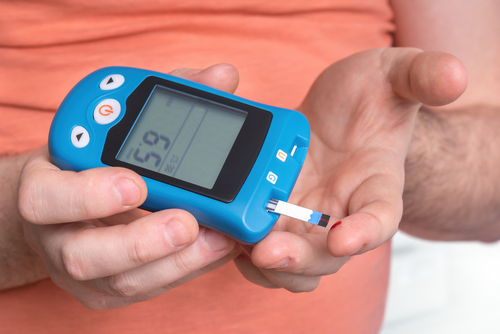Overview
The current standard measure of glucose control is not useful for measuring short-term changes and can struggle to work in people with some blood conditions. An alternative is to track levels of fructosamine, however it is not widely used. Researchers supported by HDR UK used a large genetic database to understand how our genes can influence fructosamine levels.
The challenge
Diabetes is a major health problem, affecting over 450 million people around the world. Without treatment, the condition leads to high levels of glucose in the blood. The standard measurement for this is the level of glycated haemoglobin (HbA1c), which gives an indication of glucose control over the previous three months, due to the speed at which haemoglobin is recycled.
Another potential measure is fructosamine, which measures glucose control over the previous two to three weeks. However, it is not widely used despite its potential advantages for people with haemoglobin disorders and its more responsive nature.
Only one study has studied how inherited genetic mutations influence fructosamine levels. For a new test to be used in clinical practice, it will be essential to understand how different factors in the body can affect the results.
The solution
Researchers studied the genetics of over 20,000 people of European ancestry to understand what might influence fructosamine levels. These people were taking part in the INTERVAL study, which examined the time between blood donations. The researchers combined their results with a previous study in the United States of over 7,000 people.
Impact and outcomes
The paper, published in the journal Diabetes, identified two genes that were linked to fructosamine levels, RCN3 and GCK. GCK had not previously been known to affect fructosamine but it is well known for its role in sensing glucose levels in the pancreas. The RCN3 result confirmed what had been found in the previous study.
The researchers showed that the variation in fructosamine levels between people is only weakly related to genetics, and most of the differences are due to environmental factors, such as diet. If fructosamine is shown to be a useful alternative to HbA1c, it could particularly benefit people with anaemia or diseases that affect haemoglobin.
Impact committee
The Impact committee highlighted this paper because the work done by this international team of researchers is of high quality and significance.




